Is Toronto bigger than Chicago? This question has sparked debates among urban enthusiasts, economists, and even casual travelers. It’s the kind of query that seems simple but unravels into a fascinating exploration of population, geography, culture, and economics. Renowned urbanist Jane Jacobs once said, "Cities have the capability of providing something for everybody, only because, and only when, they are created by everybody." Both Toronto and Chicago embody this sentiment, but in vastly different ways. Meanwhile, economist Richard Florida has highlighted Toronto’s rise as a global city, while Carl Sandburg famously dubbed Chicago the "City of the Big Shoulders." So, which city truly stands taller? Let’s find out.
Population: Who Has More People?
When it comes to population, Toronto and Chicago are neck and neck, but with some interesting twists. Toronto’s population has been on a steady climb, thanks in large part to its welcoming immigration policies and its reputation as a global hub for diversity. As of 2023, the city proper is home to 2.93 million people, while the Greater Toronto Area (GTA) boasts a staggering 6.4 million residents. This growth has made Toronto the most populous city in Canada and one of the fastest-growing urban centers in North America.
Chicago, on the other hand, has seen a slight decline in its population over the past decade. The city proper now houses around 2.7 million people, while the Chicago metropolitan area is home to 9.5 million. This decline is partly due to suburban migration and economic shifts, but Chicago remains a powerhouse in the Midwest and a key player in the U.S. economy.
So, who wins the population battle? It depends on how you look at it. Toronto’s city population is larger, but Chicago’s metro area is more populous. Both cities are shaped by their unique demographic trends, with Toronto’s growth driven by immigration and Chicago’s influenced by its historical role as a major industrial and cultural center.
Geography: Which City Covers More Land?
When it comes to land area, Toronto and Chicago are neck and neck, but with some interesting differences. Toronto sprawls across 243 square miles, making it slightly larger than Chicago’s 234 square miles. But don’t let the numbers fool you—Chicago packs a lot into its smaller footprint. The Windy City is known for its iconic skyline, sprawling parks like Millennium Park, and its industrial zones that have shaped its history. Toronto, on the other hand, is famous for its dense urban core and sprawling suburbs that stretch out like a patchwork quilt.
Toronto’s geography is defined by its proximity to Lake Ontario, which provides stunning waterfront views and recreational opportunities. The city’s skyline is dominated by the CN Tower, a symbol of its urban density. Chicago, meanwhile, sits on the shores of Lake Michigan, offering its own waterfront charm. The city’s grid-like street layout, designed after the Great Chicago Fire of 1871, makes it easy to navigate—unless you’re trying to find parking during a Cubs game at Wrigley Field.
Both cities face challenges related to urban sprawl and environmental sustainability. Toronto’s rapid growth has led to increased traffic congestion and pressure on public transit systems like the TTC. Chicago, with its aging infrastructure, is grappling with the need for modernization while preserving its historic charm. It’s a classic case of “bigger isn’t always better”—unless you’re talking about pizza slices, in which case, Chicago wins hands down.
Economy: Which City is Wealthier?
When it comes to economic clout, Chicago has the upper hand—for now. The Windy City’s metro area boasts a GDP of $689 billion, making it one of the largest economies in the United States. Its roots in manufacturing, transportation, and finance have solidified its status as a global business hub. Companies like Boeing and McDonald’s call Chicago home, and the city’s Chicago Mercantile Exchange is a powerhouse in the financial world.
Toronto, however, is no slouch. With a city GDP of $332 billion, it’s the economic engine of Canada. The city is a major player in finance, technology, and film production. The Toronto International Film Festival (TIFF) attracts global attention, and the city’s tech scene is booming, earning it the nickname “Silicon Valley of the North.” Companies like Shopify and Rogers Communications are driving innovation and growth.
While Chicago’s economy is larger, Toronto is catching up fast. The city’s focus on technology and its ability to attract global talent are key factors in its growth. Both cities are hubs for innovation and entrepreneurship, but they approach it in different ways. Chicago leans on its industrial heritage, while Toronto embraces its multicultural identity to drive economic success. It’s like comparing a classic muscle car to a sleek electric vehicle—both are impressive, but they’re built for different roads.
Culture: Which City is More Influential?
When it comes to culture, both Toronto and Chicago have carved out unique identities that resonate globally. Toronto is often celebrated as one of the most diverse cities in the world, while Chicago is renowned for its rich history and cultural legacy. Let’s dive into what makes each city a cultural powerhouse.
Toronto’s Multicultural Identity
Toronto is a melting pot of cultures, with over half of its population born outside of Canada. This diversity is reflected in its neighborhoods, festivals, and culinary scene. From the vibrant streets of Chinatown to the bustling markets of Little Italy, Toronto offers a taste of the world in one city. The Toronto International Film Festival (TIFF) is a major cultural event, attracting filmmakers and celebrities from around the globe. Other iconic landmarks include the Royal Ontario Museum and the CN Tower, which symbolize the city’s blend of history and modernity.
Chicago’s Cultural Legacy
Chicago, on the other hand, is a city steeped in tradition. Known as the birthplace of modern architecture, it’s home to iconic structures like the Chicago Architecture Center and the Willis Tower. The city’s music scene is legendary, with genres like blues, jazz, and house music originating here. Cultural landmarks such as Art Institute of Chicago and Navy Pier draw millions of visitors annually. Chicago’s sports teams, like the Chicago Bulls and Chicago Cubs, also play a significant role in its cultural fabric.
Key Takeaways
- Toronto’s diversity makes it a global cultural hub, offering a unique blend of traditions and experiences.
- Chicago’s rich history and cultural landmarks give it a distinct identity that continues to influence the world.
- Both cities are must-visit destinations for anyone interested in exploring the cultural richness of North America.
Urban Challenges: What Issues Do They Face?
Despite their many strengths, both Toronto and Chicago face significant urban challenges that require innovative solutions. Let’s explore the key issues each city is grappling with and how they’re working to address them.
Toronto’s Urban Issues
Toronto’s rapid growth has brought with it a host of challenges. Housing affordability is a major concern, with skyrocketing prices making it difficult for many residents to find affordable homes. Traffic congestion is another pressing issue, as the city’s infrastructure struggles to keep up with its expanding population. Public transit expansion is a priority, but projects like the Metrolinx face delays and budget overruns. Additionally, the city is working to balance development with environmental sustainability, ensuring that growth doesn’t come at the expense of green spaces.
Chicago’s Urban Issues
Chicago faces its own set of challenges, with crime rates being a significant concern. The city is working to address this through community policing and social programs, but progress has been slow. Infrastructure aging is another issue, with many of the city’s roads, bridges, and public transit systems in need of repair. Economic inequality is also a pressing problem, with disparities in income and access to resources affecting many residents. Efforts to revitalize neighborhoods and attract investment are ongoing, but the road to recovery is long.
Key Takeaways
- Toronto’s challenges include housing affordability, traffic congestion, and public transit expansion.
- Chicago is grappling with crime rates, infrastructure aging, and economic inequality.
- Both cities are working on innovative solutions to address these issues and ensure a better future for their residents.
AI Solutions: How Could AI Help?
Artificial intelligence (AI) has the potential to revolutionize urban planning and management in both Toronto and Chicago. By leveraging cutting-edge technologies, these cities can address their unique challenges and pave the way for a smarter, more sustainable future. Here’s how AI could make a difference:
Traffic Management
AI-powered traffic systems could significantly reduce congestion and optimize public transit. For instance, IBM Watson and Google DeepMind have already demonstrated how machine learning can predict traffic patterns and suggest optimal routes. Implementing such systems in Toronto and Chicago could lead to smoother commutes and reduced emissions.
Crime Prevention
Predictive policing using AI can help identify high-risk areas and allocate resources more effectively. Companies like PredPol have developed algorithms that analyze crime data to predict where incidents are likely to occur. This approach could help Chicago address its crime rates and improve public safety.
Housing Solutions
AI algorithms can analyze housing data to develop affordable housing strategies. For example, Zillow uses AI to predict housing market trends, which could be adapted to identify areas for affordable housing development in Toronto. This could help alleviate the city’s housing affordability crisis.
Environmental Sustainability
AI-driven energy management systems can reduce carbon footprints and promote sustainability. Siemens and GE Digital have developed AI solutions that optimize energy usage in cities. Implementing these technologies in Toronto and Chicago could lead to significant environmental benefits.
Economic Growth
AI tools can identify emerging industries and attract investment. Platforms like Palantir and Salesforce use AI to analyze economic data and provide insights that can drive growth. By leveraging these tools, both cities can strengthen their economies and create new opportunities.
Action Schedule/Roadmap
To implement these AI solutions effectively, a detailed roadmap is essential. Here’s a step-by-step plan:
- Day 1: Assemble a multidisciplinary team of urban planners, AI experts, policymakers, and community leaders. Key personnel could include representatives from MIT Urban Studies and University of Toronto.
- Week 1: Conduct a comprehensive data audit of both cities, gathering information on traffic patterns, crime rates, housing data, and energy usage.
- Month 1: Develop AI models for traffic and crime prediction, leveraging platforms like TensorFlow and PyTorch.
- Month 2: Pilot AI-powered public transit systems in select neighborhoods, using real-time data to optimize routes and reduce congestion.
- Year 1: Implement city-wide AI solutions for housing and energy management, using algorithms to identify affordable housing opportunities and optimize energy usage.
- Year 1.5: Evaluate the impact of AI initiatives through community feedback and data analysis, making adjustments as needed.
- Year 2: Scale successful AI projects across both cities and share best practices globally, establishing Toronto and Chicago as leaders in smart city innovation.
The Future of Toronto and Chicago: A Tale of Two Cities
Toronto and Chicago are more than just cities; they are living, breathing entities that reflect the dreams and aspirations of millions. While Toronto’s rapid growth and multicultural identity make it a beacon of diversity, Chicago’s rich history and economic strength give it a unique charm. Both cities face challenges, but they also possess the tools and talent to overcome them.
Artificial intelligence offers a glimpse into a future where urban challenges are met with innovative solutions. From reducing traffic congestion to improving public safety, AI has the potential to transform the way we live, work, and play. By embracing these technologies, Toronto and Chicago can continue to thrive as global leaders.
As we look to the future, it’s important to remember that the success of these cities depends on collaboration and innovation. Whether you’re a resident, a policymaker, or simply a fan of urban studies, the story of Toronto and Chicago is one of resilience and hope. Together, we can build a brighter future for all.
For more local news and insights, visit Toronto News and Chicago News. Join the conversation and share your thoughts on how AI can shape the future of these incredible cities.
FAQ
Q1: Is Toronto’s population larger than Chicago’s?
Yes, Toronto’s city population is larger at 2.93 million compared to Chicago’s 2.7 million. However, Chicago’s metro area is more populous, with 9.5 million people compared to Toronto’s 6.4 million. For more insights, check out Toronto News and Chicago News.
Q2: Which city has a bigger economy?
Chicago’s economy is larger, with a metro area GDP of $689 billion, while Toronto’s city GDP is $332 billion. However, Toronto’s economy is growing rapidly, especially in sectors like finance and technology. Learn more about their economic landscapes on Chicago’s official website and Toronto’s official website.
Q3: How could AI help these cities?
AI can address urban challenges in both cities by:
- Improving traffic management with smart systems.
- Predicting and preventing crime through data analysis.
- Developing affordable housing strategies using algorithms.
- Reducing carbon footprints with AI-driven energy solutions.
For more on AI’s role in urban planning, visit IBM’s AI Solutions.
Q4: What are the main challenges faced by Toronto and Chicago?
Toronto struggles with housing affordability and traffic congestion, while Chicago deals with crime rates and aging infrastructure. Both cities are working on solutions to these issues. For updates, visit Toronto News and Chicago News.
Q5: Which city is better to live in?
It depends on your preferences. Toronto offers a diverse, growing environment, while Chicago has a rich cultural legacy and strong economy. Explore more about life in these cities on Toronto’s official website and Chicago’s official website.
Q6: What are some famous landmarks in Toronto and Chicago?
Toronto is home to the CN Tower and the Royal Ontario Museum. Chicago boasts landmarks like Millennium Park and the Art Institute of Chicago.
Q7: How do Toronto and Chicago compare in terms of sports?
Toronto is known for its Raptors (NBA) and Blue Jays (MLB). Chicago is famous for the Bulls (NBA) and Cubs (MLB). Both cities have passionate sports fans and vibrant sports cultures.
Q8: What are the best ways to get around Toronto and Chicago?
Toronto’s TTC and Chicago’s CTA provide extensive public transit options. Both cities also have bike-sharing programs and ride-sharing services like Uber and Lyft.
Q9: How do Toronto and Chicago handle environmental sustainability?
Toronto has initiatives like the Live Green Toronto program. Chicago focuses on projects like the Chicago Climate Action Plan. Both cities are working to reduce their carbon footprints.
Q10: Where can I find more local news about Toronto and Chicago?
For the latest updates, visit Toronto News and Chicago News.
Wait! There's more...check out our gripping short story that continues the journey: Chasing Hope
Disclaimer: This article may contain affiliate links. If you click on these links and make a purchase, we may receive a commission at no additional cost to you. Our recommendations and reviews are always independent and objective, aiming to provide you with the best information and resources.
Get Exclusive Stories, Photos, Art & Offers - Subscribe Today!
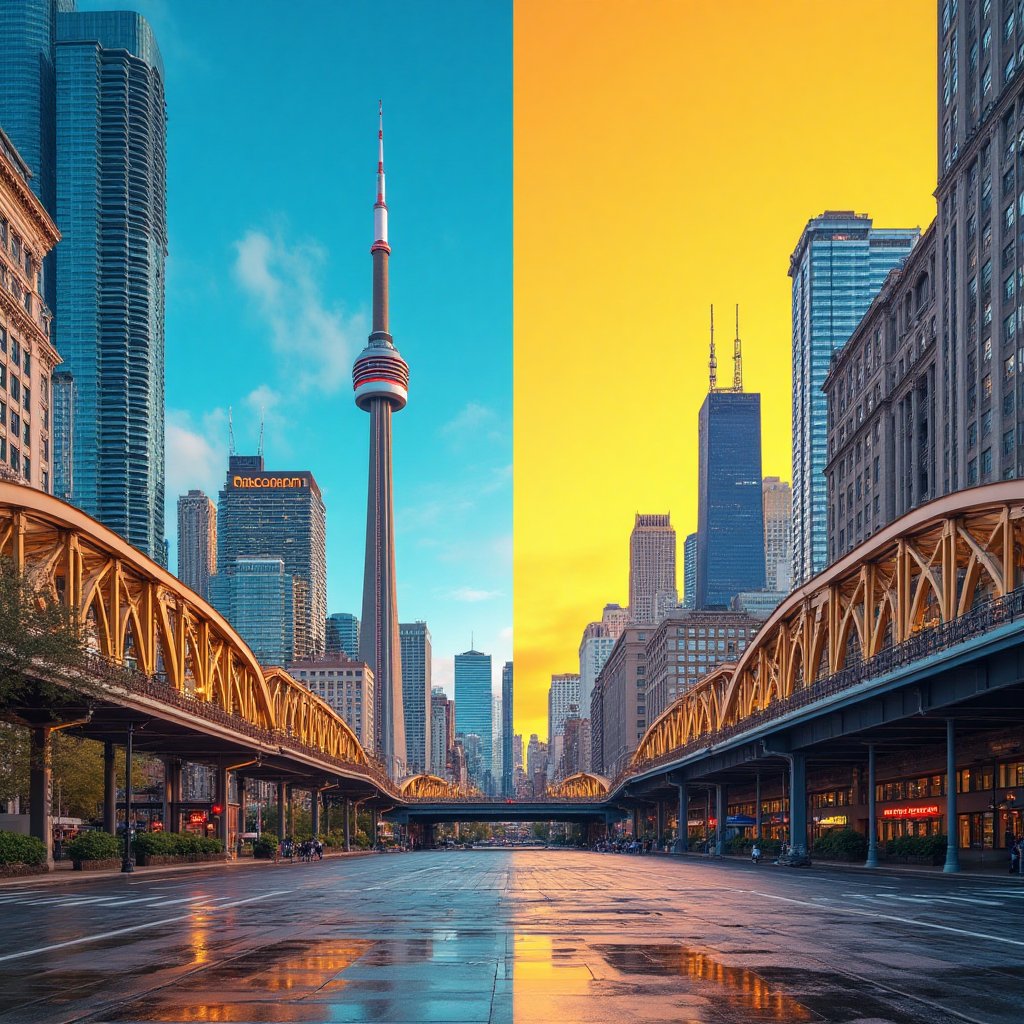
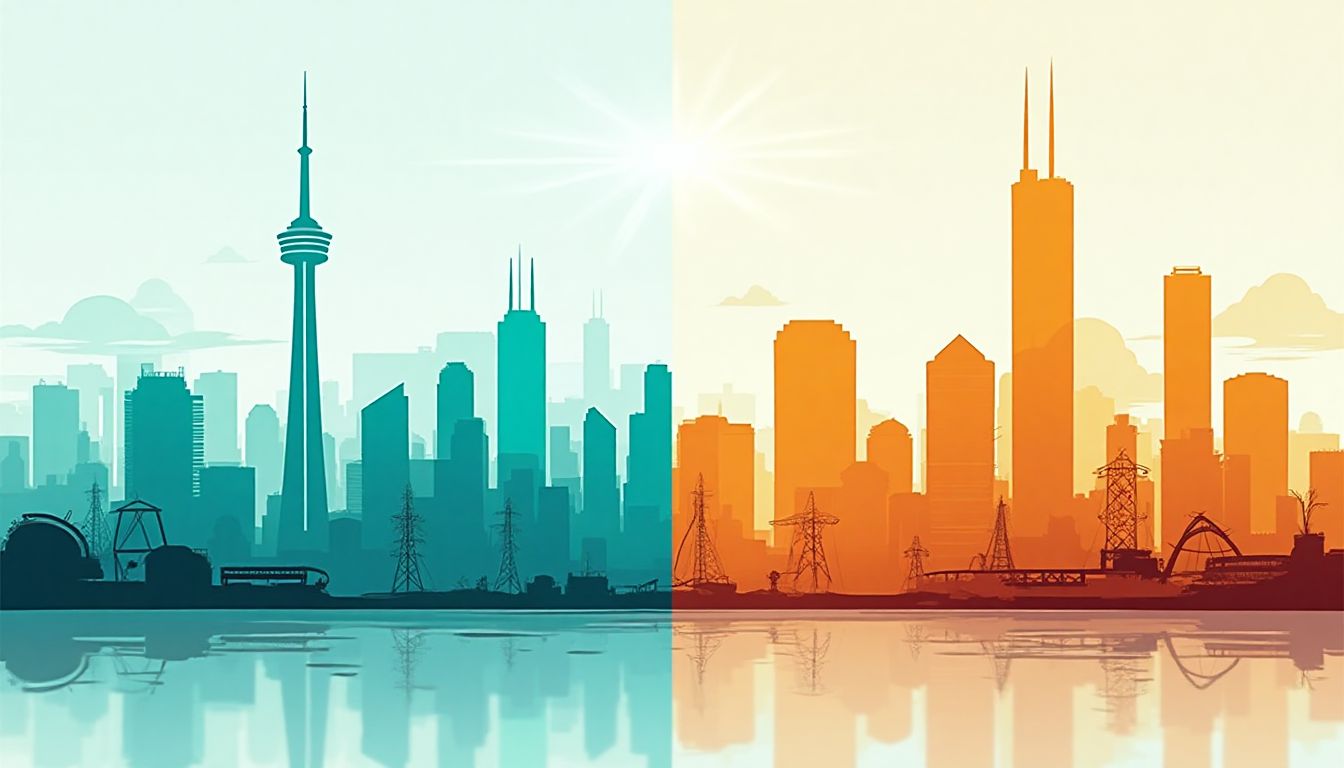
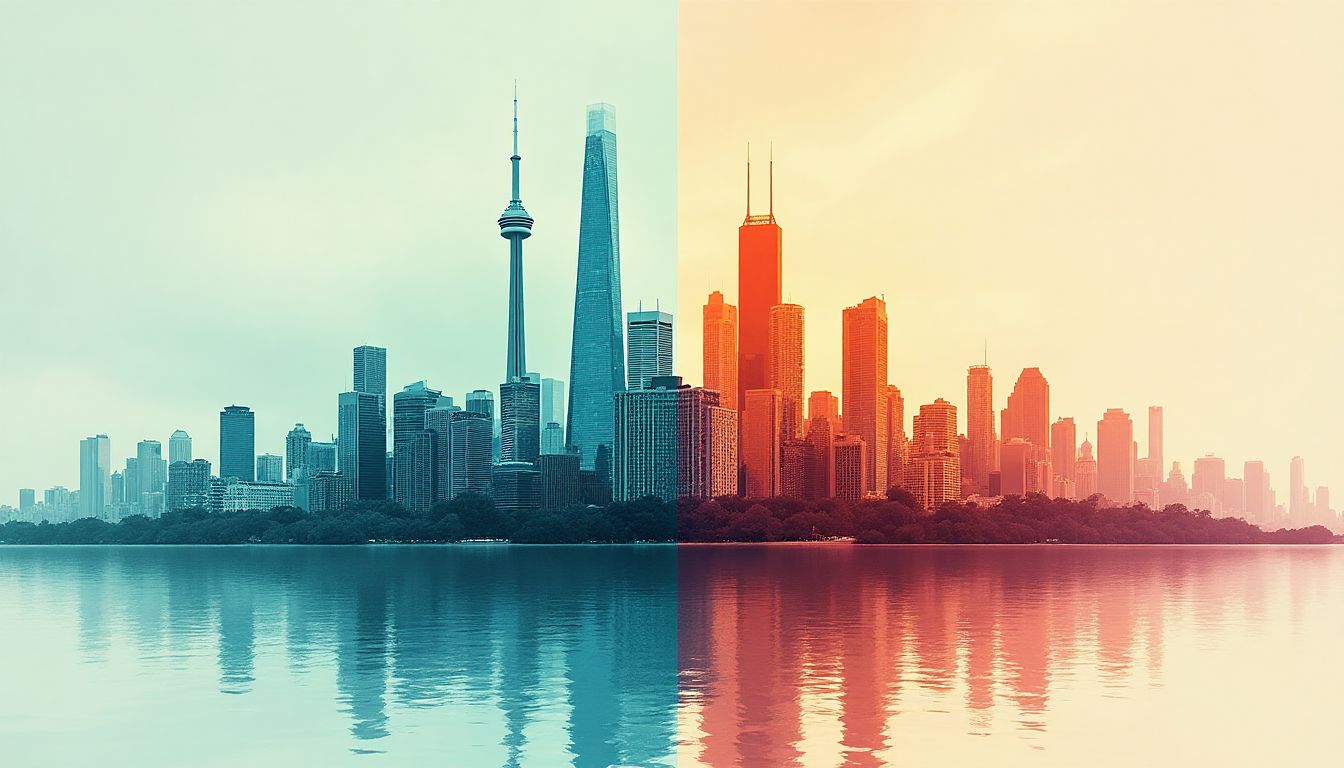
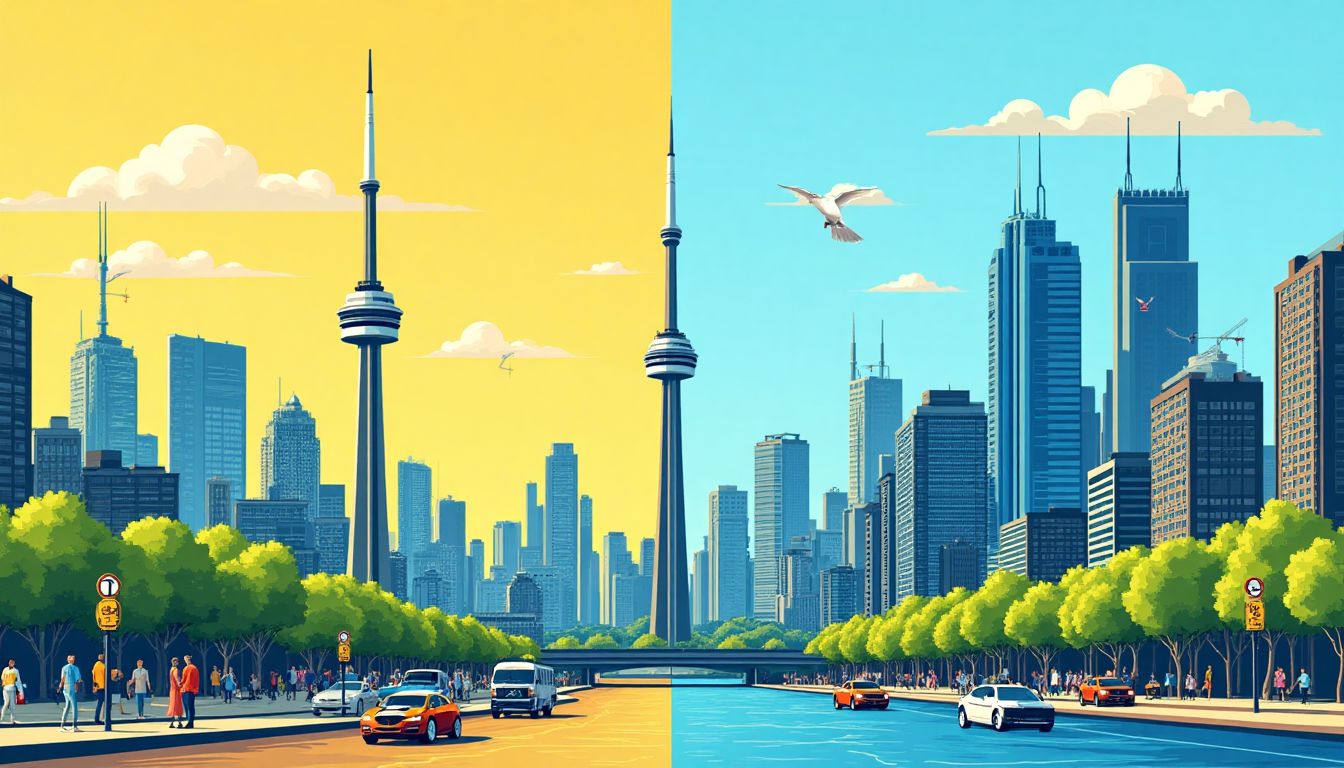
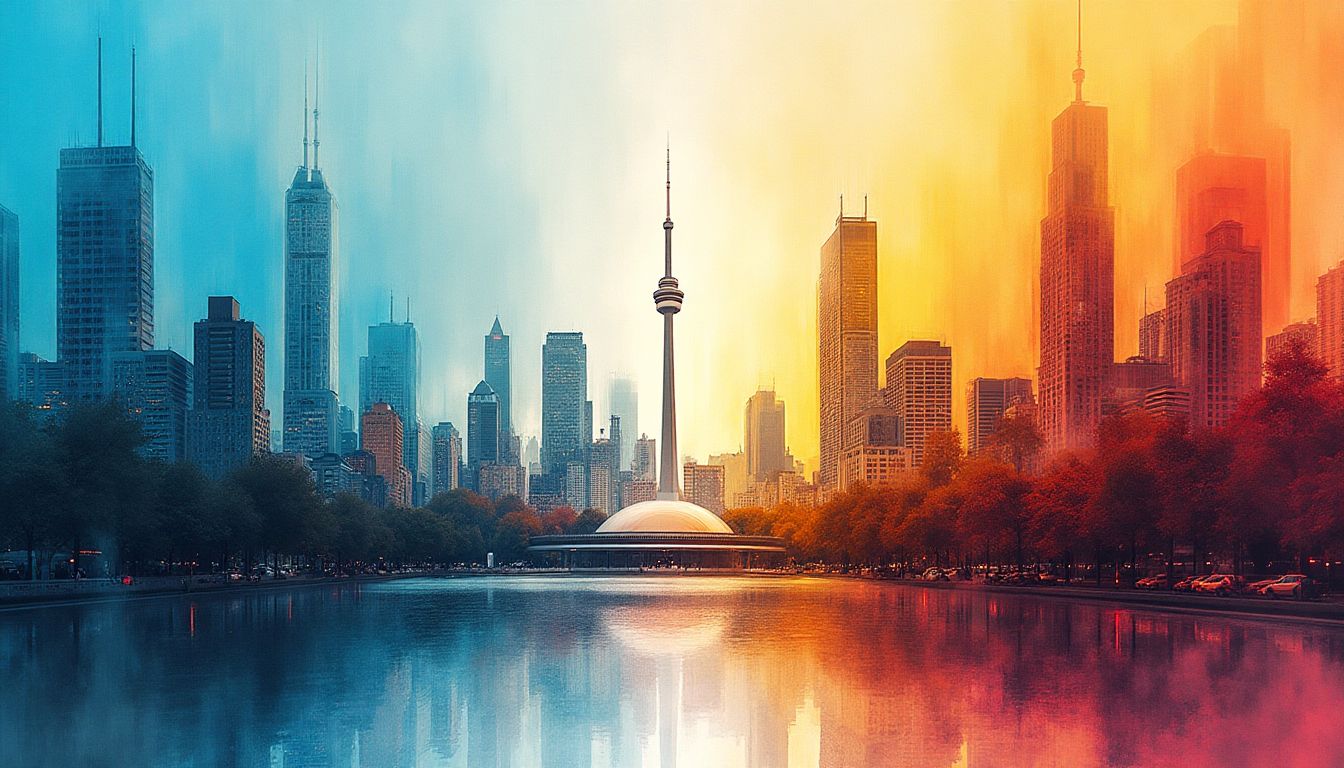


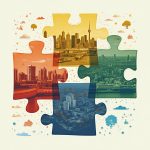





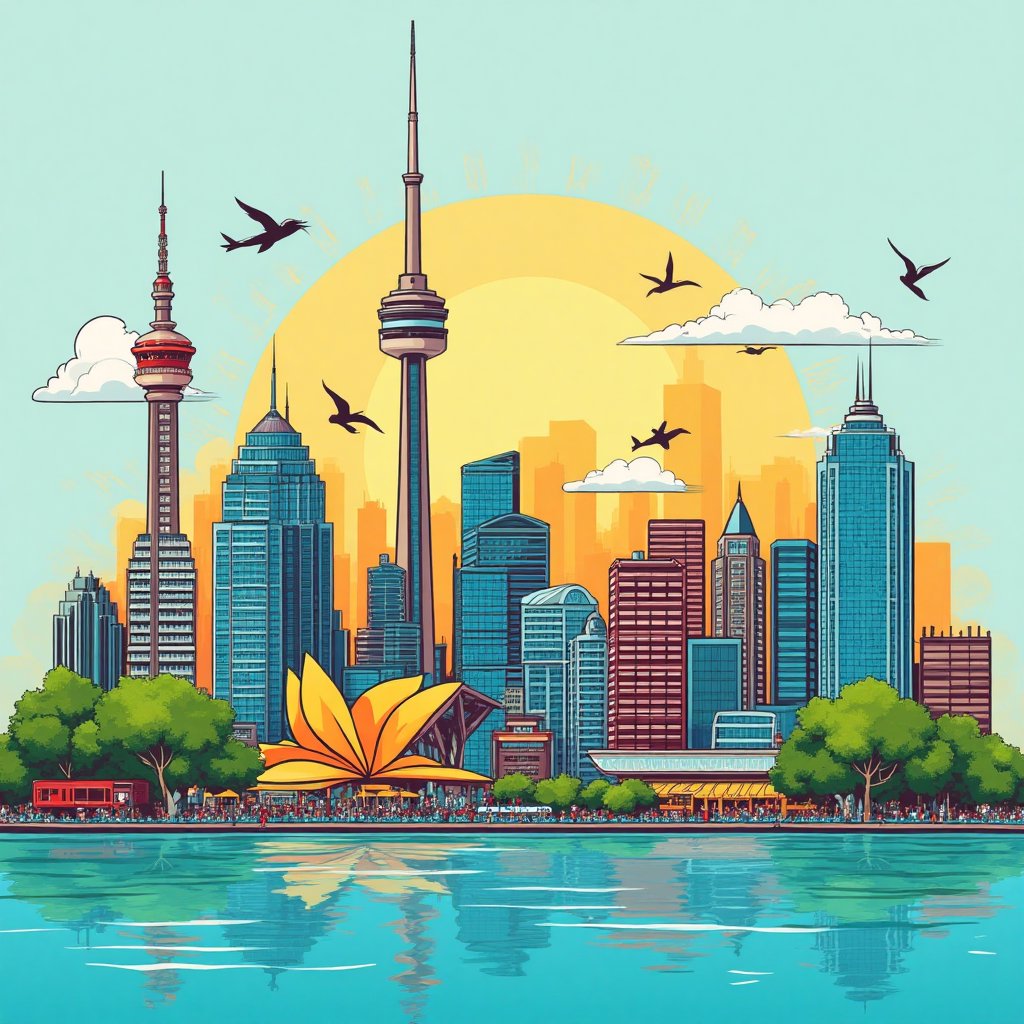















Post Comment
You must be logged in to post a comment.